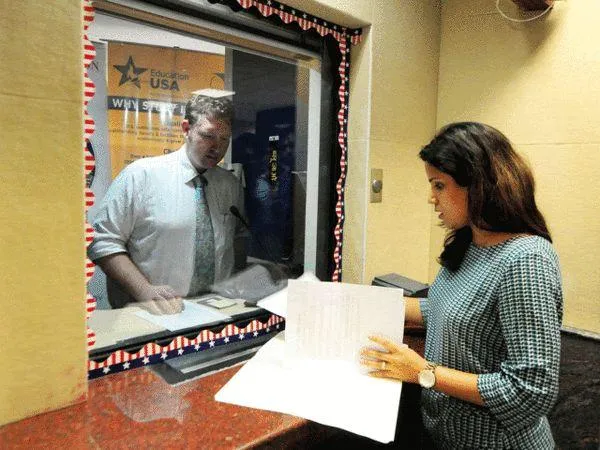Introduction:
Studying abroad is an exciting opportunity for personal and academic growth, offering students the chance to immerse themselves in new cultures, languages, and educational experiences. However, before embarking on this journey, one crucial step is obtaining the necessary visa to study in your chosen destination. Navigating the visa process can seem daunting, but with proper preparation and understanding, it can be a smooth and manageable process.
Understanding the Visa Process
Research and Choose the Right Visa Type
The first step in the visa process is to research and determine the type of visa required for your intended studies. Different countries have various visa categories for students, such as student visas, exchange program visas, or temporary resident visas. It's essential to understand the specific requirements and restrictions of each visa type to ensure you apply for the correct one.
.Gather Required Documents
Once you've identified the appropriate visa type, gather all the necessary documents for your visa application. Common documents include:
Valid passport
Letter of acceptance from the educational institution
Proof of financial means to support yourself during your studies
Medical certificates or health insurance
Language proficiency test scores (if required)
Visa application form and fee
Apply Early
It's crucial to start the visa application process well in advance of your intended departure date. Visa processing times can vary widely depending on the country and time of year, so submitting your application early will help ensure you have sufficient time for processing and any additional requirements that may arise.
Attend Visa Interview
Some countries require students to attend a visa interview as part of the application process. During the interview, you may be asked questions about your academic background, intentions for studying abroad, financial situation, and ties to your home country. Being prepared and confident can help you navigate the interview successfully.
Await Decision
After submitting your visa application and attending any required interviews, you'll need to wait for a decision on your visa. This can take anywhere from a few weeks to several months, so it's essential to be patient and avoid making travel arrangements until you have received confirmation of your visa approval.
Arrive and Register
Once your visa has been approved, it's time to finalize your travel plans and prepare for your arrival in your destination country. Be sure to follow any additional instructions provided by the consulate or embassy, and upon arrival, register with the appropriate authorities as required by your visa.

Frequently Asked Questions During Visa Interviews
1. Why did you choose [destination country] for your studies?
Be honest about your reasons for choosing the destination, whether it's the quality of education, specific academic programs, cultural opportunities, or career prospects.
2. How do you plan to finance your studies abroad?
Provide details about your funding sources, such as scholarships, personal savings, or financial support from family members. Be prepared to demonstrate that you have sufficient funds to cover tuition fees, living expenses, and any other associated costs.
3. What are your plans after completing your studies?

4. Do you have any ties to your home country?
Explain any family, employment, or other commitments that demonstrate your intention to return to your home country upon completion of your studies. This could include plans for further education, job opportunities, or community involvement.
5. How will you adapt to living and studying in a foreign country?
6. Can you provide more information about the program you have been accepted to?
Be prepared to discuss details about your chosen academic program, including the curriculum, faculty members, research opportunities, and any relevant extracurricular activities or projects.
7. Do you have any criminal record?
Be honest and transparent about any previous criminal convictions, if applicable. Depending on the country's visa requirements, certain criminal offenses may impact your eligibility for a student visa.
Conclusion
Navigating the visa process for studying abroad requires careful planning, preparation, and attention to detail. By understanding the requirements and steps involved, as well as being prepared for potential visa interview questions, you can increase your chances of success and embark on your international education journey with confidence. Remember to start early, stay organized, and seek guidance from your educational institution or relevant authorities if needed. With the right approach, studying abroad can be a transformative and enriching experience that opens doors to endless opportunities for growth and learning.










